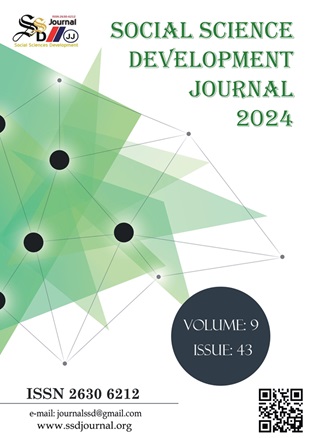THE CRIME AND PUNISHMENT OF DISRUPTION IN ISLAMIC LAW
DOI:
https://doi.org/10.31567/ssd.1157Keywords:
Law, Crime, Punishment, Tazir, DiscordAbstract
In Islamic law, crimes and punishments are discussed in three groups under the title of "ukûbât":
retaliation, hadd and tazir. Crimes and punishments determined in the Quran and Sunnah, which are
the basic sources of Islamic law, are called retaliation and hadd. The authority to determine crimes
and penalties other than these is left to the discretion of political authorities and judges. This area,
which has a very wide place in Islamic criminal law, is called tazir crimes and penalties. This article
deals with the discussions around the 33rd verse of Maidah Surah, which regulates the crime of
terrorism. Based on the expression "corruption" in the verse, the effect of the concepts of
"corruption" and "oppression" on the differentiation of meanings and punishments is emphasized.
Many jurists are of the opinion that the death penalty for terrorist crimes is only for those who kill.
However, it is a fact that subversion is considered a crime in the context of tazir crimes, and many
actions have been subject to criminal prosecution, up to the death penalty, with the accusation of
"sâ'î bi'l-fasâd" throughout the historical process.It is known that many grievances have occurred due to the accusation of "disruption" within the
framework of the wide discretion granted to the political authority regarding Tazir. It is possible to
say that the accusation of "subversion", whose boundaries are not fully drawn legally today and, in
the future, as in the past, has a significant potential to create new grievances.




